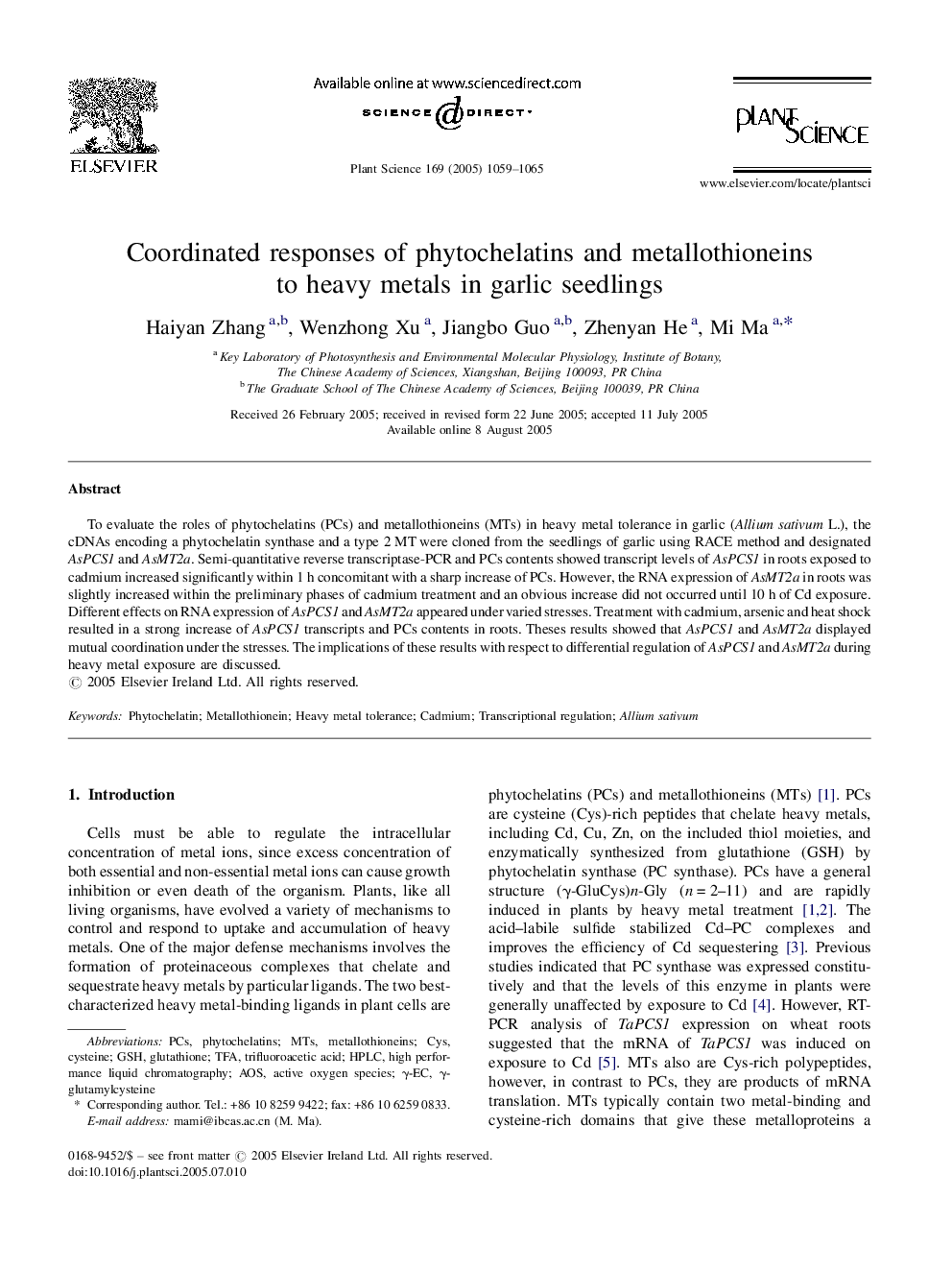| Article ID | Journal | Published Year | Pages | File Type |
|---|---|---|---|---|
| 10841376 | Plant Science | 2005 | 7 Pages |
Abstract
To evaluate the roles of phytochelatins (PCs) and metallothioneins (MTs) in heavy metal tolerance in garlic (Allium sativum L.), the cDNAs encoding a phytochelatin synthase and a type 2 MT were cloned from the seedlings of garlic using RACE method and designated AsPCS1 and AsMT2a. Semi-quantitative reverse transcriptase-PCR and PCs contents showed transcript levels of AsPCS1 in roots exposed to cadmium increased significantly within 1Â h concomitant with a sharp increase of PCs. However, the RNA expression of AsMT2a in roots was slightly increased within the preliminary phases of cadmium treatment and an obvious increase did not occurred until 10Â h of Cd exposure. Different effects on RNA expression of AsPCS1 and AsMT2a appeared under varied stresses. Treatment with cadmium, arsenic and heat shock resulted in a strong increase of AsPCS1 transcripts and PCs contents in roots. Theses results showed that AsPCS1 and AsMT2a displayed mutual coordination under the stresses. The implications of these results with respect to differential regulation of AsPCS1 and AsMT2a during heavy metal exposure are discussed.
Keywords
Related Topics
Life Sciences
Agricultural and Biological Sciences
Plant Science
Authors
Haiyan Zhang, Wenzhong Xu, Jiangbo Guo, Zhenyan He, Mi Ma,
